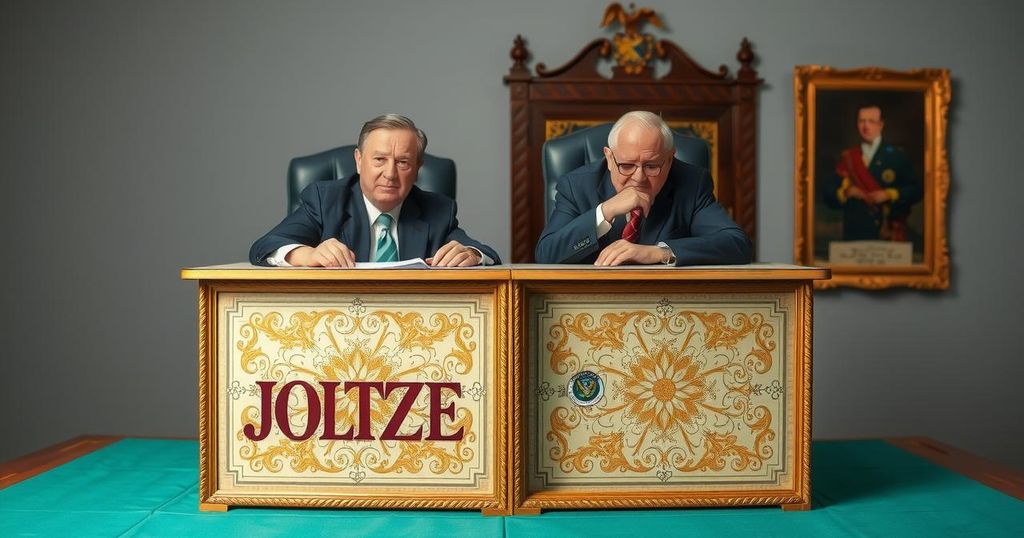Bolivia Faces Controversial Judicial Elections Amid Political Turmoil

Bolivia held a controversial election for its top judges, a process characterized by political maneuvering and public disengagement. Only four of nine seats on the Constitutional Court were contested in a backdrop of political tension. Critics question the system’s legitimacy as previous elections showed low turnout and dissatisfaction among citizens.
On Sunday, Bolivia conducted a prominent yet controversial vote for its top judges amid a backdrop of political tension and public apathy towards the electoral process. Despite strict campaigning prohibitions, candidates resorted to unconventional means of gaining visibility. The recent elections sought to fill four out of nine seats on the influential Constitutional Court, a process mired in criticism regarding its legitimacy and allegations of political maneuvering. The backdrop of this electoral exercise sheds light on the unique yet contentious nature of Bolivia’s judicial election system, which is rare globally as a model for electing judges yet fraught with challenges.
Bolivia remains the only nation that practices popular elections for its highest judicial positions, a system introduced in 2009 under former President Evo Morales. However, the nature of these elections has increasingly been questioned, with critics arguing that they serve to escalate political divisions rather than enhance democratic governance. Recent decisions by the Constitutional Court, allegedly influenced by current President Luis Arce, reflected an ongoing power struggle within the ruling party, complicating the electoral landscape. The Inter-American Court of Human Rights expressed concerns regarding the potential implications of postponed elections on the integrity of the justice system, further highlighting the stakes involved in this electoral cycle.
This election marks the third consecutive initiative to elect judges in Bolivia, with previous attempts yielding low voter turnout and disillusionment among citizens. Observers predict that regardless of the outcome, the prevailing situation could have significant ramifications for the future course of Bolivian democracy. Amid increasing scrutiny from international bodies and the scrutiny of the legitimacy and effectiveness of judicial appointments, Bolivia’s unique system raises essential questions about the balance between democracy and judicial independence.
Judicial elections in Bolivia began in 2009, aiming to eliminate corruption and ensure public accountability within the judiciary. However, the public’s perception of these elections has waned over time, with many arguing that they have rendered the courts into political instruments rather than impartial adjudicators, particularly amidst allegations of party favoritism and manipulation. The current election cycle has spotlighted the ongoing power struggle between President Luis Arce and his predecessor, Evo Morales, which illuminates the complexities of governance, judicial independence, and the rule of law in Bolivia.
The elections for Bolivia’s judicial posts highlight the intricate interplay between democracy and judicial integrity. The ongoing criticisms point to significant flaws within the electoral system, reflecting broader issues of political contention, public disillusionment, and risks to the democratic fabric. As international oversight continues, the outcome of these elections will likely serve as a crucial juncture in Bolivia’s ongoing governance challenges and the quest for a more accountable judiciary.
Original Source: www.voanews.com






